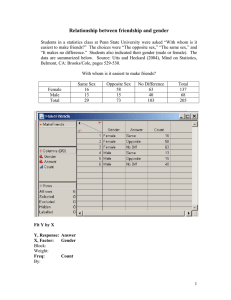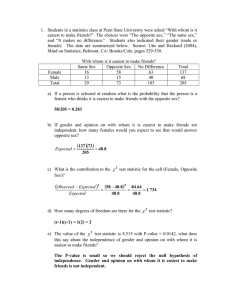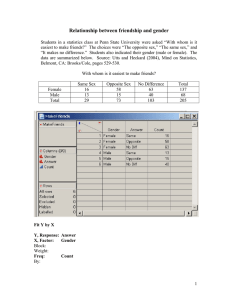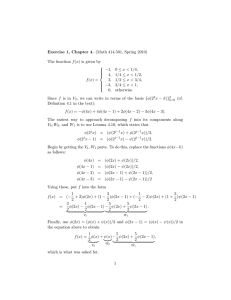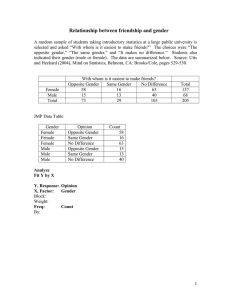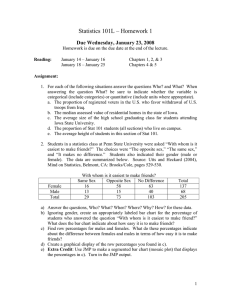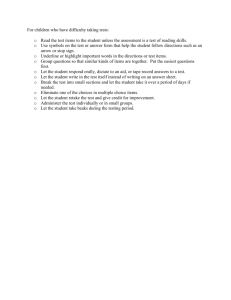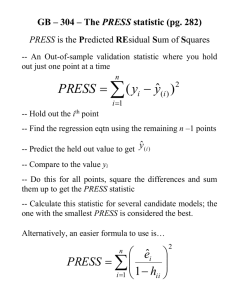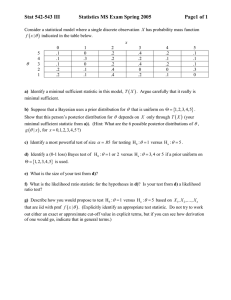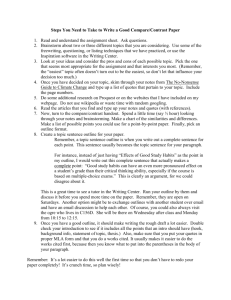1. Students in a statistics class at Penn State... easiest to make friends?” The choices were “The opposite...
advertisement
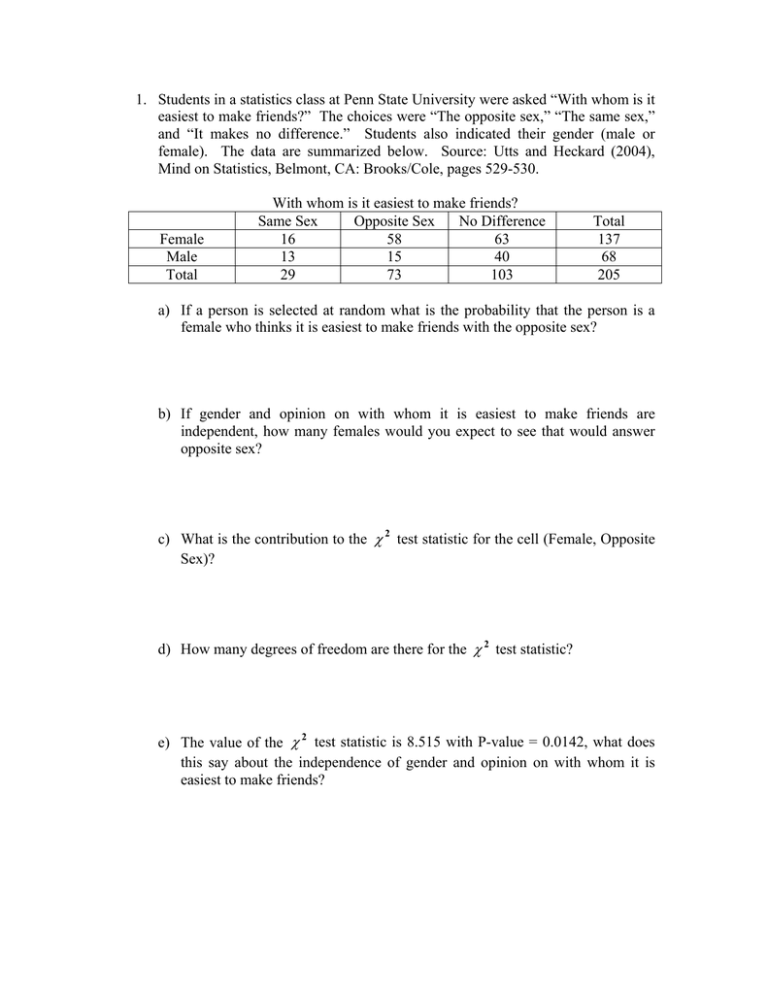
1. Students in a statistics class at Penn State University were asked “With whom is it easiest to make friends?” The choices were “The opposite sex,” “The same sex,” and “It makes no difference.” Students also indicated their gender (male or female). The data are summarized below. Source: Utts and Heckard (2004), Mind on Statistics, Belmont, CA: Brooks/Cole, pages 529-530. Female Male Total With whom is it easiest to make friends? Same Sex Opposite Sex No Difference 16 58 63 13 15 40 29 73 103 Total 137 68 205 a) If a person is selected at random what is the probability that the person is a female who thinks it is easiest to make friends with the opposite sex? b) If gender and opinion on with whom it is easiest to make friends are independent, how many females would you expect to see that would answer opposite sex? c) What is the contribution to the χ 2 test statistic for the cell (Female, Opposite Sex)? d) How many degrees of freedom are there for the χ 2 test statistic? e) The value of the χ 2 test statistic is 8.515 with P-value = 0.0142, what does this say about the independence of gender and opinion on with whom it is easiest to make friends?
